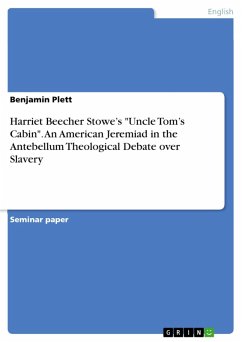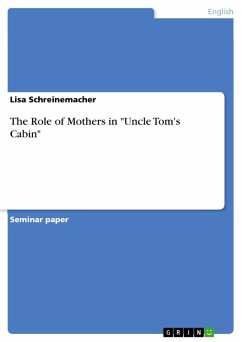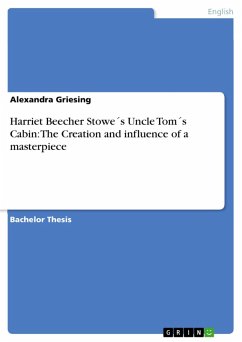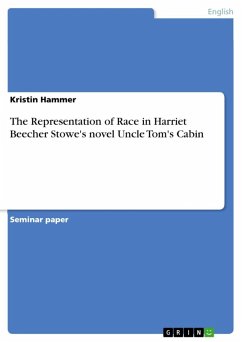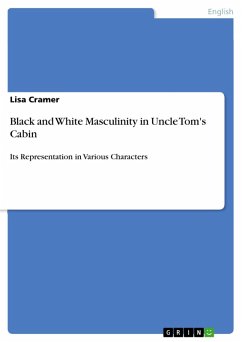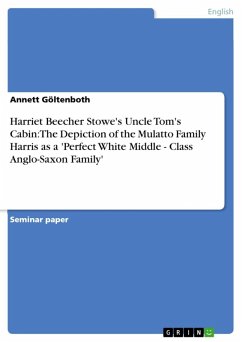Seminar paper from the year 2020 in the subject English Language and Literature Studies - Literature, grade: 1,0, University of Heidelberg (Anglistisches Seminar), course: 19th Century Woman Writers, language: English, abstract: The Fugitive Slave Act of 1850 engendered an "extraordinary rise of northern antislavery and abolition sentiment" (Stauffer 2010), in the context of which Uncle Tom's Cabin was written. Overall, however, the law only marked one aggravation of the political dispute over slavery, which started in the earliest days of the Republic and culminated in the Civil War of 1861-1865. From the beginning, this conflict had also been fought on theological grounds. At the heart of it lay the question of biblical interpretation, as no definite and common answer with regard to slavery could be discovered in the Scriptures. But since the Bibel was generally perceived as the authoritative revelation of God and therefore penetrated all aspects of American society, it was a fundamental question. At the time when Uncle Tom's Cabin was published, those in support of the proslavery scriptural position clearly held the stronger arguments. According to their literal reading, the Bible evidently sanctioned slavery. It was in this context, that Stowe's novel Uncle Tom's Cabin was published in 1852. It became the second best-selling book of the nineteenth century after the Bible. The effect the novel had was so far-reaching that Abraham Lincoln famously credited it for initiating the Civil War. Molly Oshatz is of the opinion that Stowe became "the most persuasive antislavery moderate of all" because she "avoided biblical argumentation in favour of narrative" (2012). What this theory does not take into account is how "heavily sermonic, prophetic, and apocalyptic" the book as a whole - including the narrative - is (Petter Westra 1994). Stowe did not perceive herself as a writer of literature but rather as a historian, who construed the events of her time in the predetermined history of salvation from the Fall to the Final Judgement. As a sermon delivered to the nation, her book is much more than a mere sentimental novel. It is part of the traditional genre scholars have entitled the "American jeremiad".
Dieser Download kann aus rechtlichen Gründen nur mit Rechnungsadresse in A, B, BG, CY, CZ, D, DK, EW, E, FIN, F, GR, HR, H, IRL, I, LT, L, LR, M, NL, PL, P, R, S, SLO, SK ausgeliefert werden.

